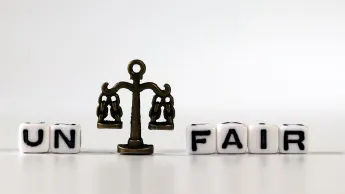We spoke with Bill Strickland, the founder and Executive Chairman of Manchester Bidwell Corporation, which works with adults in transition and at-risk youth to provide them with opportunities and new perspectives. As a Pittsburgh youth besieged by racism and poverty, his discoveries, vision, and persistence ultimately led him to become a 1996 MacArthur “Genius” grant recipient, a sought-after community leader and high-level adviser.
1014: How do social and racial inequalities manifest themselves in Pittsburgh, Pennsylvania?
Bill Strickland: In Pittsburgh and elsewhere you find that some people are fundamentally “left out”. They don’t have access to good education and, consequently, to economic opportunities. Their perilous living-conditions, especially among African Americans, sometimes even becomes life-threatening. They permanently rely on public assistance to maintain a minimum level of existence without any chance to beat unemployment and to improve their situation. Children in these underserved communities lack perspectives, they only see and experience constant struggle in a derelict environment.
1014: What is your mission at the Manchester Bidwell Corporation and what are the programs you offer to achieve your goal? Can you describe some of the challenges you and your staff experience in your every-day work? What do you like about your work?
Bill Strickland: At Manchester Bidwell, we strive to create a culture of aspiration and hope. We want to provide opportunities and show people a path out of poverty. With our free vocational instructions in partnership with Fortune 100 companies who share our philosophy, we train our students in the medical, lab tech, art, culinary and music sectors. Our center is beautiful and inviting. We teach and demonstrate that being poor doesn’t mean you can’t develop skills needed in high-level jobs. With our jazz program, for example, Manchester Bidwell is home to a Grammy-winning record label and a world-class jazz performance series
One of my biggest challenge is to maintain hope in the midst of despair. With a constituency struggling with economic, social, and psychological distress, I have to generate inspiration and energy myself. But I feel motivated and joyful when I “take the temperature” every day in the Center and feel the community spirit and sense of inclusion of faculty members and student body that prevail in its halls. The Center became my source of inspiration.
1014: The Manchester Bidwell Corporation has been replicated in many cities. These Centers for Art and Technology have made an enormous impact in providing opportunities for underserved communities. In an ideal world, what more do you think should be done to reduce inequalities?
Bill Strickland: There are currently 11 more Centers for Arts and Technology in cities throughout the United States and one in Israel that are replicating our culture and strategy. Ten more centers are being built. After the death of George Floyd, thousands of people worldwide took to the streets. Here is my work force, I thought! If we could build upon this energy, expand our mission even further and create world-wide training programs to get people into decent work, we could internationally scale unemployment and significantly reduce social inequalities in our lifetimes.
It is very expensive to keep people in poverty when you think about unemployment benefits, social programs, costs for recovery from drug addiction, incarceration. Therefore, it also makes economic sense to invest in people and turn them from liabilities into assets. Invest in an education and you will get the return in taxes within 36 months! I am hopeful that companies and governments are doing this math, looking at our outcome-based and results-oriented approach and helping us create opportunities for everyone.

